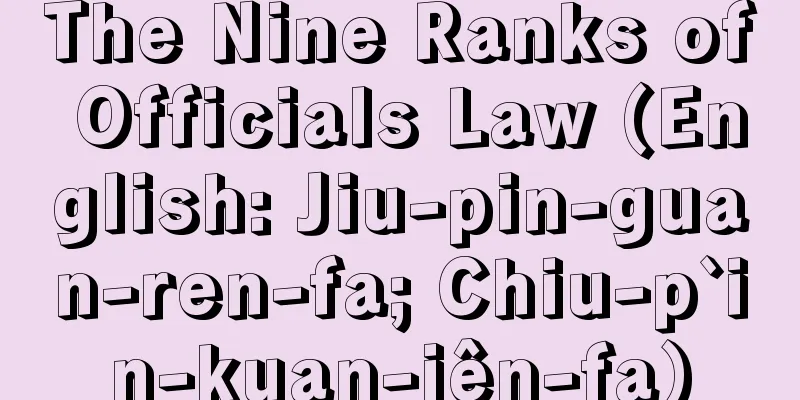Timār (English spelling)

|
In the Ottoman Empire, sipahis (knights) were given land holdings, and the sipahis exercised the right to collect taxes on the land they held, but had no control over the peasants. In addition, in times of war, sipahis participated with retainers according to the size of their land holdings. Like the iqta system, it is translated as military feudalism. It was also repurposed and given as a salary to non-military officials. Source: Obunsha World History Dictionary, Third Edition About Obunsha World History Dictionary, Third Edition |
|
オスマン帝国で実施された,シパーヒー(騎士)に与えられた保有地 シパーヒーは保有地の徴税権を行使し,農民に対する支配権はもたない。また,シパーヒーは,戦時には保有地の大小に応じて従士を連れて参加した。イクター制と同様,軍事封建制と訳されている。また,これが転用され,軍務以外の官職に対して俸給として与えられた。 出典 旺文社世界史事典 三訂版旺文社世界史事典 三訂版について 情報 |
<<: Timisoara (English spelling)
>>: Timariōn (English spelling)
Recommend
Ike no Taiga
A literati painter from the mid-Edo period. Born ...
al-Iṣfahānī (English spelling) alIsfahani
…Arabic-Islamic writer, poet, and musician. Also ...
Agung [mountain] - Agung
An active volcano in the northeast of Bali, Indone...
Tosando - Tosando
One of the Five Kinai Seven Roads. A road that con...
Béroul (English spelling)
...After being banished to the forest of Morois, ...
Bed sheet - Shikifu
Also called sheets, this is a general term for fa...
Oil stain
…Depending on the type of solvent, they are divid...
Cavendish Laboratory - Cavendish Laboratory
A physical laboratory belonging to Cambridge Unive...
Cable broadcast telephone - Yusenhosodenwa
Telephone/broadcasting equipment that mediates oth...
Churui [village] - Churui
A village in Hiroo District, Tokachi Subprefecture...
Pécs (English spelling)
The capital of Baranya County in southern Hungary....
Oyamazumi Shrine
This shrine is located on Omishima Island in the S...
Tide gauge station
Also written as tidal observation station. Tide ob...
graduated response
...This strategy was called the "New New Loo...
Nouvelle Orléans (English spelling)
… New Orleans has belonged to various countries s...



![Aguni [village] - Aguni](/upload/images/67cf239f1901a.webp)





